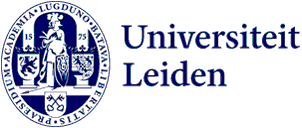Management | Leadership
Leadership and integrity: working towards a safe working environment
Three-day course aimed at developing leadership skills based on ethical principles, so you can create a safe working environment where people can act effectively and become aware of unconscious processes.
- Target group
- Superior
- Teachers
- Pia Umans Patrick Odendaal
- Method
-
Training course
Topics
The Leadership and integrity training course focuses on developing your own perspective on how to create a safe working environment. The course aims to:
• Develop awareness of the principles of being a good employer
• Facilitate discussions about themes related to intimidation and integrity
• Develop the skills required for effective communication
• Receive tools and instruments for acting with integrity
• Increase awareness of duty of care for employees
Training days
Day 1 – BART (Boundary Authority Role Task)
• Expectation management (task and role)
• Boundaries and contracting
Day 2 – Dealing with complexity
• Personal leadership and professional leadership
• Scripts and psychological games
Day 3 – Secure base leadership
• Integrity and leadership
• Ethical dilemmas
Supervision sessions
The training days are followed by supervision sessions, to be scheduled with the participants. Here, the focus is on:
• Integrating knowledge
• Working based on case histories
After the training course
The following personal development themes are embedded and internalised during the training days and supervision sessions:
• Ability to talk about ethical topics
• Setting clear boundaries and managing expectations
• Providing structure and support from secure bases (caring and daring)
• Awareness of unconscious processes (script)
• Dealing with drama and psychological games
• Managing ethical dilemmas
• Ability to voice concerns and be open to criticism
Approach
The course draws on various theoretical models and is driven by the principle that you should be able to immediately apply everything you learn. The training days and supervision sessions are mainly based on input and case histories provided by the participants. There are plenty of opportunities to practise applying the knowledge gained to everyday work situations.
Working methods and models
• Group relation therapy (Wilfred Bion / Tavistock)
• Transactional analysis (Eric Berne)
• Phases of team development (Pamela Levin)
• Secure base leadership (George Kohlrieser)
• Group development (Bruce Tuckman)
Script and ability to adapt
In order to understand the factors that influence a safe working environment, we need to be aware of and analyse unconscious processes and structures (‘undercurrents’) at an individual, group and organisation level. Being aware of your own unconscious processes and those of others enables you to increase your own ability to adapt and to communicate transparently on issues concerning integrity.
The way in which issues are dealt with within groups is often unconsciously steered by the emotional structure. Unspoken or unrecognised emotions play a major role in the in-depth processes in groups, especially when an organisation is under pressure, for example, due to understaffing and excessive workloads. People become frustrated and tend to slip back into old, ingrained (scripted) patterns. Recognising these patterns and being able to work with them helps to increase the ability and willingness to adapt within groups.
